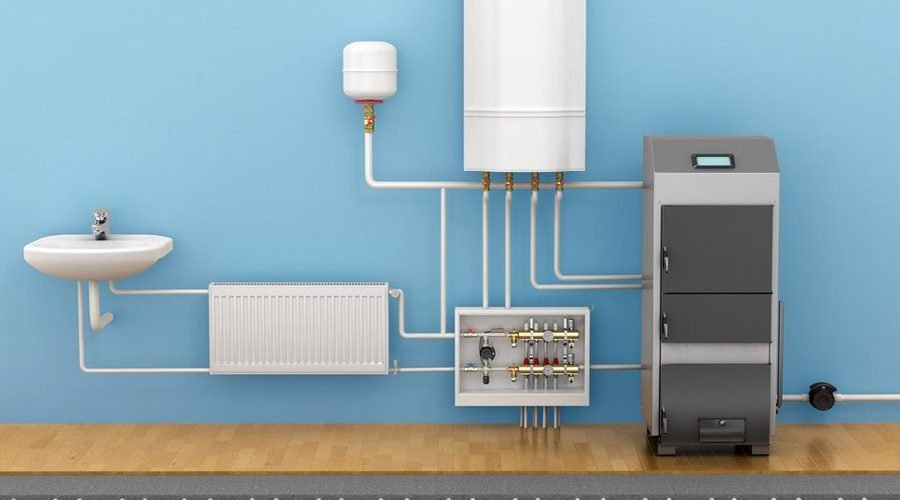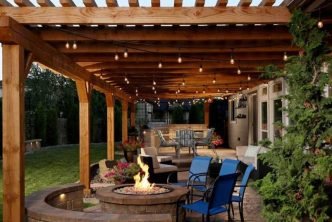Are you interested in learning how boilers work and why they are a great alternative for your home heating needs? Boilers have been used as a reliable source of warmth since the early 20th century, when their large-scale usage revolutionized the way homes were heated. Today, boilers offer an efficient and flexible way to provide consistent heat throughout your residence.
In this blog post, we will be taking an in-depth look at how boilers function, the different types available on the market, and some helpful tips on keeping them running smoothly. You can also click here for more information on comparing heating systems for your home. Keep reading to learn more about this fascinating piece of home heating technology!
Table of Contents
What is a boiler, and how does it work?
A boiler is a closed vessel in which fluid, typically water, is heated to generate steam for heating or power applications. Boilers use gas or oil to heat water, which is circulated through the building’s pipes to provide heating. The boiler will start up when the temperature falls below a set point and stop when it reaches the set point again, meaning the heat automatically turns on and off as needed.
The ability of a boiler to generate steam depends upon the amount of heat given to it from an external source. A boiler uses fuel to create thermal energy, which is then transferred to water in a vessel to produce steam. The steam can be used for various processes such as heating and power generation for home environments. Ultimately, the efficiency of a boiler is determined by how much heat energy it can extract from the fuel and transfer to the water in order to generate steam.
Two major types of boilers
Boilers are central to many industries and home comfort systems. Depending on their application, boilers can vary in size, type and purpose. Generally, there are two main types of boilers – steam and hot water.
Steam boilers work by heating water to the boiling point, facilitating the flow of steam which is used to power machinery or provide heat to a facility.
Hot water boilers operate similarly but produce hot water instead of steam that is pumped through radiators and/or baseboard convection units for space heating or used for domestic hot water applications such as laundry or bathing.
Most modern boilers are condensing boilers, which recycle exhaust gases to improve efficiency and reduce fuel consumption. Condensing boilers extract more heat from the gas it burns, which reduces running costs and helps to protect the environment by reducing carbon dioxide emissions. The condensing process also allows the boiler to operate with a lower flow temperature, making it more efficient in its use of energy.
In addition to being environmentally friendly, modern boilers are much safer than older models. They use electronic control systems and safety devices such as flame failure protection, overheat protection and pressure relief valves to prevent explosions and dangerous levels of heat or pressure from building up inside the unit.
There are a range of different types of modern boilers available, including combi-boilers, system boilers, and regular boilers. Each type has its own advantages and disadvantages, so it’s important to consult an expert before making a decision. A qualified installer will be able to advise which boiler is best suited to your home and lifestyle.
Temperature control on boilers using thermostats
Boilers can be controlled by a number of different thermostats, depending on the type of boiler. Thermostats work by sensing the temperature in the boiler’s surrounding environment and then adjusting the boiler’s output to maintain a desired temperature.
A digital thermostat is an ideal choice for controlling boilers as it allows you to set precise temperatures, and can be connected to a home automation system to provide additional energy savings. Digital thermostats can also be programmed to turn on and off at certain times of the day.
For boilers with an onboard boiler control, these typically include a built-in thermometer that automatically adjusts the output temperature as needed. However, this type of system does not offer much in terms of fine tuning for precise temperatures. Another option for controlling a boiler is to use an external thermostat. External thermostats allow you to set a desired temperature and then activate the boiler accordingly. This type of system provides more control and flexibility when it comes to setting precise temperatures.
Call in a professional for boiler problems
If you’re having problems with your boiler, it’s best to call in a professional engineer
When it comes to dealing with problems with your boiler, it’s always best to call in a professional engineer as soon as possible. Not only will they be able to diagnose any issues quickly, but also have the necessary expertise and experience to carry out the correct repairs. Boilers are complex pieces of machinery, and require special tools and knowledge to work on safely. A professional engineer will be able to assess the damage, provide a quote and carry out any necessary repairs in an efficient manner.
For those who choose to attempt DIY boiler repairs, it’s important to take safety precautions. Always make sure that your boiler is turned off and disconnected from its power source before beginning work. Ensure that the area around the boiler is always kept clear and free of debris, to prevent any accidents occurring. It’s also important to take the right safety equipment with you when attempting repairs, such as protective gloves and eyewear.
Finally, regardless of whether you choose to call in a professional engineer or attempt to repair the boiler yourself, it’s important to regularly maintain and service your boiler. Regular servicing will help identify any potential issues with your boiler before they become more serious, prolonging its life and overall efficiency. A professional engineer should be able to provide an annual service check-up of your boiler and make any necessary adjustments or repairs.





